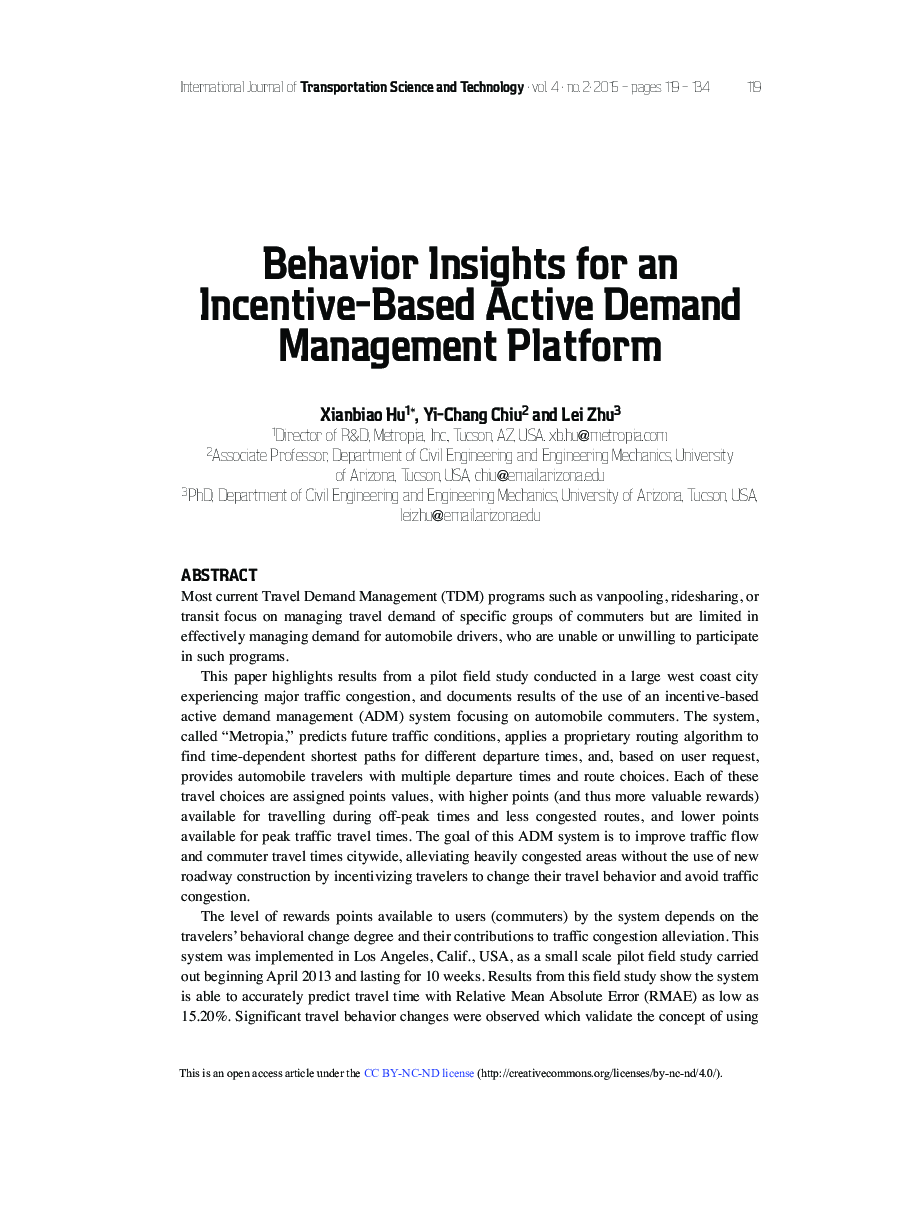| کد مقاله | کد نشریه | سال انتشار | مقاله انگلیسی | نسخه تمام متن |
|---|---|---|---|---|
| 4922957 | 1430614 | 2015 | 15 صفحه PDF | دانلود رایگان |
ABSTRACTMost current Travel Demand Management (TDM) programs such as vanpooling, ridesharing, or transit focus on managing travel demand of specific groups of commuters but are limited in effectively managing demand for automobile drivers, who are unable or unwilling to participate in such programs.This paper highlights results from a pilot field study conducted in a large west coast city experiencing major traffic congestion, and documents results of the use of an incentive-based active demand management (ADM) system focusing on automobile commuters. The system, called “Metropia,” predicts future traffic conditions, applies a proprietary routing algorithm to find time-dependent shortest paths for different departure times, and, based on user request, provides automobile travelers with multiple departure times and route choices. Each of these travel choices are assigned points values, with higher points (and thus more valuable rewards) available for travelling during off-peak times and less congested routes, and lower points available for peak traffic travel times. The goal of this ADM system is to improve traffic flow and commuter travel times citywide, alleviating heavily congested areas without the use of new roadway construction by incentivizing travelers to change their travel behavior and avoid traffic congestion.The level of rewards points available to users (commuters) by the system depends on the travelers' behavioral change degree and their contributions to traffic congestion alleviation. This system was implemented in Los Angeles, Calif., USA, as a small scale pilot field study carried out beginning April 2013 and lasting for 10 weeks. Results from this field study show the system is able to accurately predict travel time with Relative Mean Absolute Error (RMAE) as low as 15.20%. Significant travel behavior changes were observed which validate the concept of using incentives to influence people's travel behavior. Furthermore, field study results show 20% travel time can be saved for people who changed their travel behavior.
Journal: International Journal of Transportation Science and Technology - Volume 4, Issue 2, 1 June 2015, Pages 119-133
